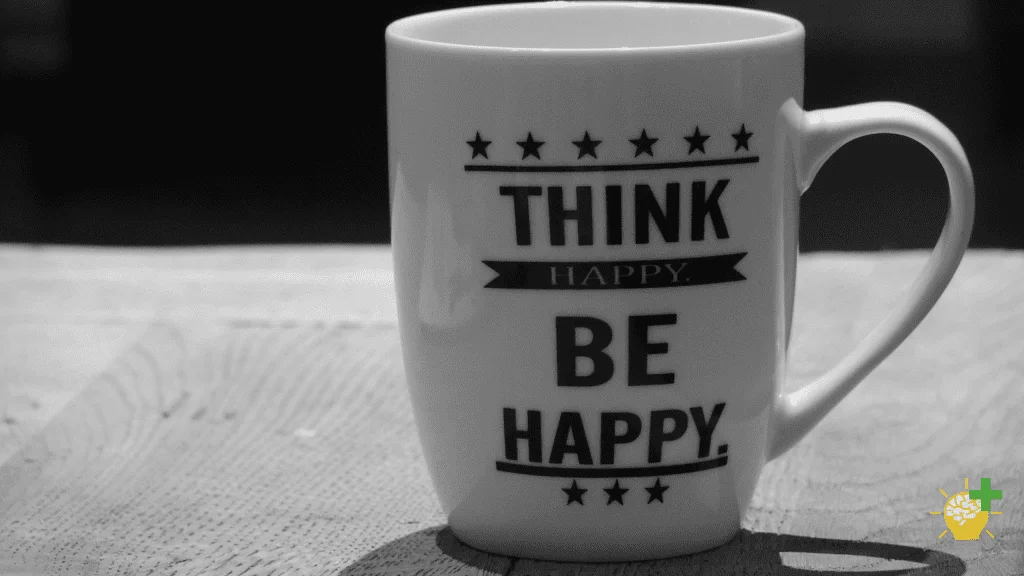Have you ever expressed your concerns only to hear someone give you the age-old saying, “trust your gut?”
That advice might work for others, but it is generally ineffective for someone with anxiety issues. Someone with general anxiety can’t tell if their thoughts are based on something real or merely rooted in fear, so telling them to trust their gut instinct can be frustrating.
If you’re reading this, I take that you have difficulty distinguishing the voices in your head, let alone trusting your intuition.
To help you in this regard, this quick comparison of anxiety vs intuition will help you understand the difference between the two.
Remember that intuition or gut feeling can be a bit hard to explain since there are hardly any human words to fully express what they mean. However, I’ll keep things as simple as possible. My aim is not to impress you with mystical-sounding words and phrases but to help you live the best life you deserve.
Keep reading if you’re ready to move past the confusion and stress of not knowing when you’re having anxiety.
Anxiety vs Intuition: Definition and Connection

Anxiety is a feeling of intense nervousness or excessive worry, usually about a future event but can also be focused on things from the past.
Anxious thoughts are often accompanied by a sense of dread or uneasy feeling.
On the other hand, intuition is the human ability to instinctively receive insight into something without conscious reasoning.
In other words, it is your sixth sense.
With intuition, you just “know,” even though you can’t explain this knowing. This is why intuition is often called ambiguous knowing because it defies logic and no evidence is necessary.
Unlike anxiety, there is no pressure or a nagging sense of unease with intuition. You feel relaxed and calm when experiencing intuition rather than moving around with foreboding.
Now, here’s the tricky part about all of this.
Intuition and anxiety are somewhat connected. Your anxiety often indicates that you’re doing something that contradicts your intuition.
Here’s what I mean.
Anxiety is deeply rooted in the side of you that wants to avoid conflict and maintain the status quo. It stems from the part of your identity that fears change and tells you to do what you think you “should” do.
On the flip side, intuition prompts you to do what you “need” to do.
You feel contradicted one the voice of intuition contradicts what you think you “should” do. That’s another way of saying that not paying attention to your intuition is what’s causing anxiety.
The good news is that you won’t feel any internal contradiction if you’re not highly sensitive to your sixth sense or at least considerably tuned into your gut feeling.
In other words, if you feel torn apart by the voices in your head, you are on the brink of learning to distinguish between anxiety and intuition.
The first step in identifying anxiety and trusting your intuition is to stop feeling frustrated at your inability to tell the difference this red hot minute.
And the next step? Pay attention to the following differences.
Anxiety vs Intuition: 5 Major Differences

1. Focus on Future Versus Focus on the Present
Here’s one way to know when you have anxiety. You are experiencing anxiety if your focus is on what could happen in the future or reenacting hurtful memories to create fearful thoughts about the future.
Anxiety is living in the future and using all the negative things that might happen to torment yourself in the present.
Intuition is the exact opposite. It lives primarily in the present, so you get prompts and clues about what’s happening in the present moment rather than predicting the future.
2. Fear-Based Thoughts Versus Calm, Neutral Feeling
The main difference between anxiety and intuition is the way they feel. Anxiety is fear-based; in most cases, it is a reaction to threats (whether real or perceived).
Anxiety is your mind’s way of protecting you, but because its perception is warped, it blows potential threats out of proportion and stops you from moving forward.
And since anxiety is rooted in fear-based thoughts, it is often associated with feelings of irrational fear and excessive worry.
Intuition isn’t a result of fearful thoughts. Instead, it usually occurs out of nowhere. When you experience intuition, it feels neutral without being demanding.
A good way to tell whether you’re having anxiety or experiencing intuition is to step back from the internal prompts and examine what you’ve been focused on for the past hour or two.
Ask yourself:
- Am I scared of something?
- Do I feel threatened in some way?
- Is this internal prompt coming from somewhere I can’t really put my finger on, or have I been brooding over this topic (or something related) for a while?
You want to be honest with yourself when you answer these questions because that’s how to tell the difference between anxiety and intuition.
3. Uncomfortable Physical Symptoms Versus Soothing Thoughts
Anxiety is far from a pleasant experience. Anytime you catch yourself overanalyzing or obsessing, realize that you’re tiptoeing into the vicinity of anxiety.
The thoughts that run through your mind when you’re anxious can produce very uncomfortable physical symptoms like excessive sweating, increased heart rate, difficulty breathing, panic, and adrenaline rush.
In contrast, intuition is a simple “knowing” that occurs instantly and is associated with soothing thoughts that feel more like a mild inkling.
4. Loud and Intense Versus Subtle and More Textural
Speaking of mild inklings, intuition doesn’t feel intense. Instead, it is subtle, less chatty, and more of a vibe. The prompt is softer and quieter, and because it is non-intrusive, you can easily dismiss or ignore the voice of intuition.
Anxiety is quite demanding, with loud, intense, and highly repetitive messages. It is difficult to ignore or dismiss the voice of anxiety and often leads to overthinking.
In other words, you’re likely anxious if you can’t shake a particular repetitive and demanding thought.
5. Interjecting Everything Versus Showing up Mostly During Major Decisions
Anxiety is typically associated with an all-encompassing fearful feeling that rears its ugly head almost every time you have to make a decision, whether big or small.
This intrusive nature of anxiety can negatively affect your quality of life, as constantly battling fear-based thoughts is quite debilitating. You’re likely dealing with anxious thoughts if making the slightest decisions often leave you feeling drained.
Intuition rarely shows up for minor, everyday decisions. In most cases, you’ll experience a flash of clear and nuanced “knowing” when logic and reasoning aren’t enough to provide clear directions.
Pay Attention to the Sensations in Your Body
How do you’re experiencing anxiety vs intuition? It all comes down to the reactions in your mind and body.
What’s happening in your body? Do you feel tensed, scared, and worried in reaction to your internal prompts? Or are you more relaxed, calm, and somewhat like an outside observer?
Don’t discount your physical sensations because they hold the key to helping you know when you’re having anxiety or experiencing intuition.




